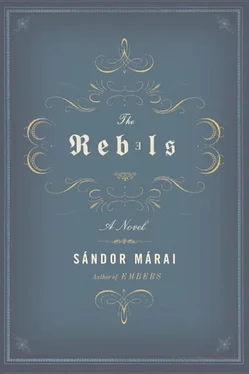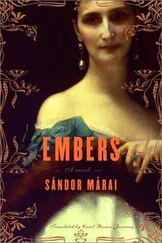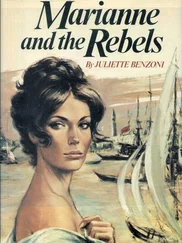“We will all be cleansed,” said the cobbler and raised his leather-knife. His face was radiant.
IT WAS INDEED POSSIBLE THAT THEY WOULD ALLbe cleansed. He walked slowly beside the wall, aimlessly, as if he had no particular place to go. The gang would surely be waiting for him by now. The pack of cards was weighing down his pocket. It was a warm evening, uneasily warm. Some time that afternoon there must have been rain that covered the street with a thin, soft sheen of light, but as evening approached a wind got up in the hills and within a few minutes had dried the surfaces. A balmy haze of warmth drifted through the air conveyed to town by freshly swollen fields when the mist of the spring evening rises and dew begins to settle in the pores of the skin.
He had turned eighteen in April but looked younger than that. Down the school corridors, just before you reached the conference rooms, there was a group of old class photographs on display. He had often studied them, surprised at how different he and his generation looked from those who had graduated ten or twenty years ago. They were enormous mature men, almost without exception. Though most of their faces looked young, there were those among them who seemed fully adult. There were one or two with fine curling mustaches. Next to them Ábel’s friends looked like children in short pants. It was as if with every year that passed the generations had grown softer and more childish. He found the picture of his father’s graduation year. There was Kikinday the judge, Kronauer the colonel in the medical corps, and there was his father too: all proper adults. Kronauer had a sharp mustache, checkered trousers, and a coat after the French fashion. He held a tall hat in his hands. His father was manly, broad-shouldered. He was practically all man, differing from the figure Ábel knew only in that he lacked the latter’s addition of a beard. But you could imagine him bearded even then, twenty-four years ago. He wondered how he himself would look if he grew a beard or a mustache. Thinking that, he gave a bitter grin. It was unlikely he would get that far because his face was still completely smooth and white, lacking any sign of whiskers, lacking even the ghost of a mustache. His hands were small too, like a child’s. Perhaps humanity degenerated year by year. But it was also possible that they were evolving. The Japanese were small too, refined, and yet looked older.
He had begun to read two years ago. He read unsystematically, whatever came to hand. One day he wrote something. He was fifteen. When he saw the piece of paper with his writing on it he got a fright and hid it in his drawer. The next day he took it out and read it. It wasn’t poetry but it didn’t seem to be quite prose either. It scared him so he tore it up. His fear persisted for days. At that time he was still inhabiting “this” side of life. There was no one he dared talk to. What was this? Why did he write it down? What does it mean when a man picks up a pen and writes something? When something simply comes to him and it appears there, complete, in his writing? Why should he have done that? Is this what writers do? He had come across a book once that someone had brought home from the front. It was a Russian book, full of Russian script. A novel. The author was anonymous. He could not help but feel shaken when he thought of it. Somewhere in Russia there lived this anonymous figure conjuring characters, events, and entire tragedies out of nothing, committing them to paper, a spirit floating over an immense distance, and here he was holding it in his hands.
He stopped in front of the bookshop window and ran a melancholy eye over the books. Books hid some secret, not precisely in what they said, but in the reason for them being written at all. There wasn’t anybody he could discuss this with. He did try occasionally with Ernõ, but Ernõ always seemed to be speaking of something else and they failed to communicate with each other. Ernõ talked about the books’ “contents.” He knew that was of secondary importance. What he wanted to know was why the books existed. Do they bring joy to those who write them? He felt they must cause more pain than pleasure. And if you write something down, is it then lost, does it have nothing to do with you any more, is there only a memory, an ache, left behind, as if you had been found guilty of something, something for which, sooner or later, you would have to answer?
He wrote a few poems. He described somebody’s appearance or a conversation he had overheard in the street. No one knew he had done this, not the gang and certainly not his aunt. Tibor was only interested in sports, the theater, and girls. For Béla it was fashion and girls. The one-armed one was utterly fixated on girls. It was difficult to know what interested Ernõ. He was a passionate chess player. An excellent mathematician. But the mystery of why someone sat down each night to commit whatever he had seen or heard to paper was of absolutely no interest to him.
He sat alone in his room at night, a sheet of paper before him, but it was his father’s secret sessions with the violin that came to mind, which made him blush, so he quickly rose from the table, lay down, and immediately turned off the light. He knew what he was doing was not the real thing. It was no more than what his father was doing when he played the violin. And it wasn’t simply a matter of someone writing down what he had seen and heard during the day. There was always something beyond such events, some secret, some meaning, some connection between them that he should discover, seize on, and articulate. One day he found a copy of War and Peace. When he got as far as the scene where the prince returns from the battlefield and sees his dead wife whose expression seems to be asking “What have you done to me?” he shuddered. He felt someone had expressed a thought that could probably not be articulated in words. It was something that affected the whole realm of human experience. “What have you done to me?”
He reached the high street. The city shimmered with weak light like an invalid’s bedroom. Couples were still strolling in crowds down the avenue: in the theater the performance had just begun. Some officers were standing around in front of Béla’s father’s delicatessen, chatting with the hunchbacked chemist who had an intimate knowledge of the town and its affairs. They were sizing up the girls and the chemist was helping them by revealing their interesting little secrets. Now and then they burst out in a storm of laughter. They were on leave, wounded, each one wearing one of the uniforms of the front. The chemist covered his mouth with his hand.
Opposite the theater, in front of the café, stood the actor leaning on an advertising pillar. The one-armed one was with him, loudly explaining something. When Ábel reached them the actor greeted him with a profound bow.
“We were waiting for you, my angel,” he said.
THE ACTOR HAD ARRIVED IN TOWN WITH THEcompany in the early autumn, saying he had had a contract in the capital first, but the theater had closed. He was forty-five years old but claimed to be thirty-five. Not even the gang believed this though they eagerly swallowed everything else he told them. He tended to play comic, dancing roles but referred to himself as a ballet instructor. The contract laid down that the company was obliged to supply divas and leading men each season for a few highlights from popular operettas. It was the comedian-dancer’s task to teach them the appropriate elements of ballet.
He had put on weight, developing a proper paunch and jowls, a rare thing in the world of comedians and dancers. The audience liked him because he included a lot of current gossip in his act. He wore a wig of light chestnut color. His head was large and equine. His jaw was thrust forward and he was so near-sighted that he couldn’t see the prompter’s box, but he refused to wear glasses out of vanity, not even in real life, as he put it.
Читать дальше












